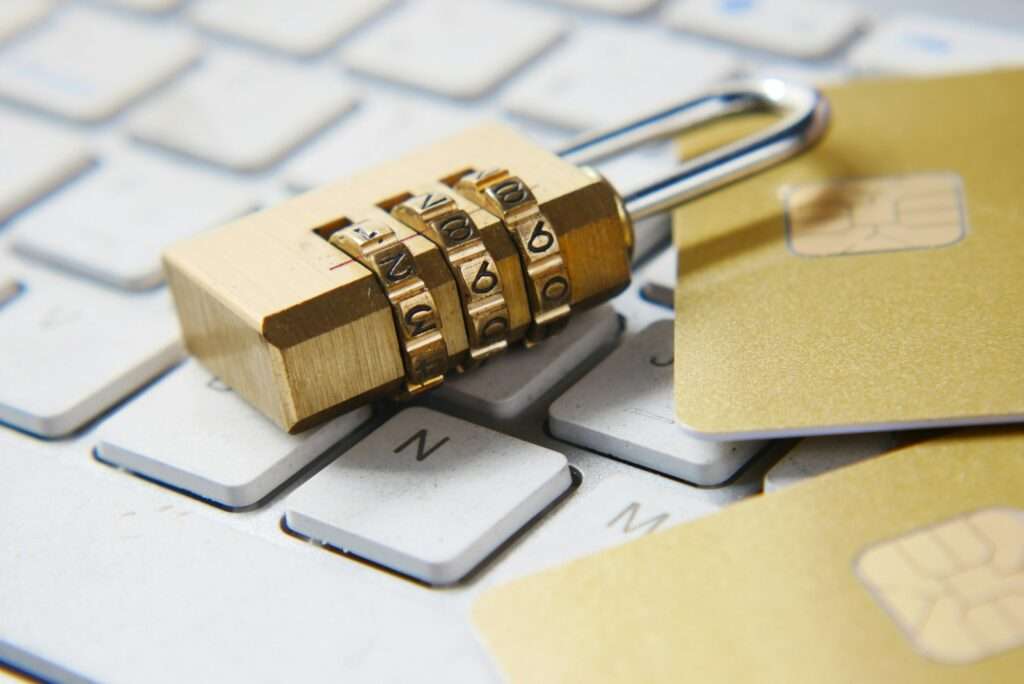Create Strong Passwords for Your Online accounts

Practicing good password management is essential for safeguarding your online accounts such as your Facebook, Instagram and online banking accounts against various security threats.
Common Password Threats and How to Prevent them
1.
Brute force attacks
A brute force attack is a hacking method that uses trial and error to crack passwords and login credentials. Hackers use various automated tools to systematically guess passwords until they succeed. Weak passwords are susceptible to these brute force attacks.
Create Strong Passwords
Follow the below guidelines to create strong passwords:
- Most websites require passwords that are at least 8 characters long, However cybersecurity experts recommend passwords that are at least 12 characters long.
- Passwords shouldn’t contain your name or name of a person known to you.
- Add numbers and special characters to make it difficult for someone to guess your password.
- Don’t use words from dictionary as they may be guessed by hackers using automated tools to perform what is called a dictionary attack
- Use the InfoSecyour Password Generator to generate random passwords that are hard to guess.
Set Strong Security Answers
When creating online accounts, follow these guidelines to set your account recovery information
- Select questions for which the answers are not available on your social networking profiles or none of your close friends know
- You may pretend to be someone else while answering the questions and remember who you are pretending to be
- Set up security answers which do not match with the security question. For instance, for a question which asks “maiden name of mother?” put your favourite colour as the answer
2.
Leaked passwords used to hack in to your accounts
Most online services face data breaches as a part of which your passwords may be leaked online. Hackers often use leaked credentials to login to your accounts.
Follow Good Password Practices
- Refrain from using the same password across several social accounts. Same passwords make breaking into several accounts easier as a previously cracked password is the first choice of hackers to try for the new accounts.
- Change your passwords regularly, especially for sensitive accounts, to prevent unauthorized access.
- Monitor your accounts: Regularly monitor your accounts for suspicious activity or unauthorized access and report any suspicious activity immediately.
Enable Two-factor Authentication
- Two-factor authentication adds an extra layer of security by requiring a second factor, such as a code sent to your phone, in addition to your password.
- Popular platforms such as Facebook, Instagram, Google etc. offer Two-factor authentication feature to secure your accounts even in case your password fell in wrong hands.
- Most online banking apps and websites in India send OTPs on mobile phones to reset passwords. Hence it is important to update your phone number and not to share OTPs with unknown sources. Know more about Security tips for Online banking and UPI apps – InfoSecyour
3.
Phishing Attacks
Scammers often use various techniques to steal your passwords. One of the most common ways is to direct you to a fake website that appears legitimate thereby stealing your credentials. Know more about phishing scams
Dont Share Your Passwords
Don’t share your passwords with anyone on phone as banks or legitimate organizations do not ask for your passwords over a call or e-mail.
4.
Difficulty in managing multiple passwords
Creating unique passwords for every online account, remembering them and frequently changing them can be cumbersome, which leads to poor password management practices
Use Password Manager
- Password managers offer a secure and convenient solution to the challenge of managing multiple passwords across various online accounts.
- By storing passwords in an encrypted database, they protect against unauthorized access and reduce the risk of data breaches.
- Additionally, password managers generate strong, unique passwords for each account, enhancing security by minimizing the likelihood of password reuse.
- With features like autofill and synchronization across devices, they streamline the login process, saving time and effort for users.
- Ultimately, password managers provide peace of mind, empowering individuals to safeguard their digital identities effectively.
Always use Password managers from reputed brands as passwords are critical to your online Safety. Below are some popular password manager apps.
5.
Malware
Malware such as Keystroke loggers and password stealers steal passwords from your devices
Use Malware protection
- Use antivirus products to detect malware such as keystroke loggers
- Avoid storing passwords in browser to prevent malware from stealing your passwords. Password stealer malware often scan computers for stored passwords.
- Passwords stored on browsers can be accessed by anyone who can login to your device.
- Follow these steps to safeguard your devices from malware and other known threats. Device Security Archives – InfoSecyour